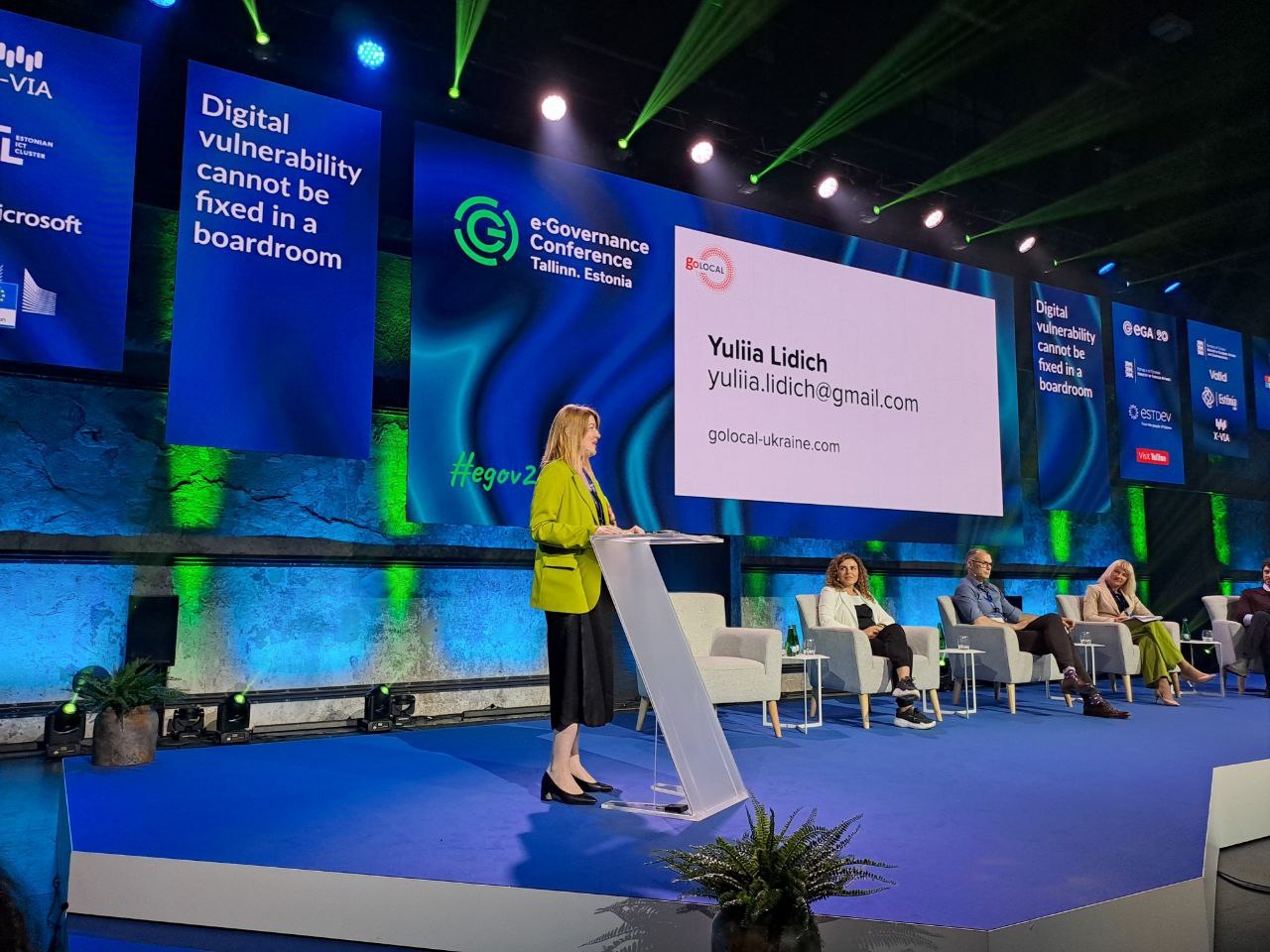The goal of the DRIVE project is to improve the quality of life of digitally vulnerable groups of citizens in Ukraine and Georgia by engaging them in digital participation in receiving services, as well as creating the necessary conditions, awareness and skills for this.
In Ukraine, 32 selected activists and representatives of civil society organizations were offered the role of digital ambassadors and trained in 8 teams. The Design thinking method, which was taught to the Ukrainian teams by Estonian expert Margus Klaar was used to write their proposals taking into account the entire user journey, ensuring comprehensive service development.
Component of the program which contributed to bringing the participants closer to their target audience was their interaction with the representatives of digitally vulnerable citizens. Digital ambassadors helped 690 vulnerable people take a course on the Diia.Digital!
As a result, 11 projects were presented, of which two pilot projects received funding and were implemented:
- “Platform against cyberbullying”
Objective: Education and preventive measures for adolescents aged 11-16 and their parents on the threats of cyberbullying using bloggers and the platform: https://stopcyberbullying.com.ua
Results:
- Eleven bloggers were involved, exceeding the initial goal of four.
- The platform was visited by 8,200 people and received 11,000 views.
- 21 media outlets published information about the platform.
- A program on combating cyberbullying was broadcast on “Morning at Home”
- “Digital transformation of pedagogical staff of the Hoshcha community”
Objective: To address the digital literacy gap among teachers in the Hoshcha community by making sure they have the necessary skills to effectively navigate digital learning.
Results:
- Fifteen trainings were successfully conducted, directly benefiting 207 teachers from the Hoshcha community.
- More than 50% of the participants felt that their understanding of digital tools had improved. 83% of respondents said they would use the training results in their daily lives and professional activities.
- A Digital Literacy Picnic was organized with 50 participants.
The results of the project were presented in Estonia at a forum dedicated to the problems of digital vulnerability of citizens among the representatives of 90 countries!




